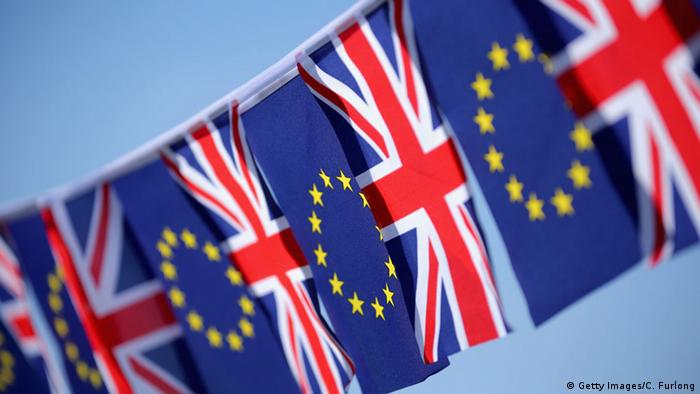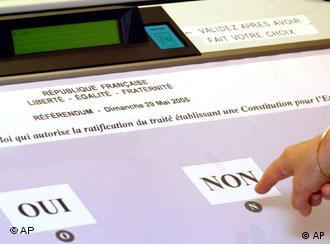European Union
Comment: fast-paced reforms bring nothing
After the Drama in the UK, the EU must use their own instruments better, to keep the right-wing populists in check. With enough political will, you can succeed, says Bernd Riegert.

The result of the British referendum is not clear, but the discussion of the consequences for the European Union is already started. If the British go, is a veritable crisis for the European Union. If the British remain, is the Referendum still be a due warning to the political leadership staff in the EU. The question is: Continue as before or change of course for the EU?
The question of the German Finance Minister and Euro-thought leader, Wolfgang Schäuble, has already answered: You cannot continue with business as usual. The panel called for more Europe and more Integration is no longer credible. The French EU Commissioner Pierre Moscovici sees it differently, he calls for a “reboot” of the European Union, more cooperation on counter-terrorism, more cooperation in social issues, more common economic and fiscal policy. The Belgian Prime Minister, Charles Michel, is going a step further and argues for a new European “Convention” or a “Conclave” to re-turn with new ideas on reform for the EU is around the corner.
New instruments are not necessary
Such a intellectual Europe-theoretical contortions, however, would bring little. The last “Convention” for the Reform of the Union 13 years ago, has given birth to proposals that were too far-reaching. For many years, was discussed. The audience, so the citizens of the EU, was not amused. The Convention, which emerged from the Constitution was promptly rejected in referendums in France and the Netherlands. Left of the Treaty of Lisbon, which today forms the institutional framework of the EU and the integration objectives of “Ever closer union” remained.

Bad memories: Negative Referendum in France in 2005
The Treaty provides all the instruments that the EU needs. A new discussion of bodies, Items, skills, and responsibilities is superfluous as a goiter. Yes, it is even dangerous, if you want to keep the Union together. Changes to the contract would have to be approved by all 28 or 27 member States approved it. In France, a Referendum would be due. Like, you can’t imagine, given the strength of the right-wing populist “National Front” gloomy enough.
There is no Fascinating, and not a forced dependence
The heads of state and government and the EU Commission should not take refuge in the fundamental discussions, but deliver. A better counter-terrorism, and refugee policy characterised by solidarity and a better functioning of the Euro-Zone with the Treaty of Lisbon is excellent to organize, if the political will is there. But it must be for all citizens and the Euro-sceptics made it clear that there are the in the British election campaign, claimed that “dictates” from Brussels. This legend, unfortunately, is knitted in Poland, Hungary, Italy, or Greece, hardworking.

Europe Correspondent Bernd Riegert: #Wewillmissyou
It is the sum of the national governments that decide. The EU Commission alone can align anything. The governments of the member States, which are democratically legitimized. The freely elected European Parliament is working on legislation. In this respect, the often attested “democracy deficit” is primarily a campaign hits the opponents of the EU, but not a real shortage. Control and sovereignty in a few policy areas such as agricultural policy have been delegated to the EU institutions voluntarily by the member States. The reputation, the need to regain independence from Brussels, is just utter nonsense.
Control is possible
The rules of the EU now for an assessment of whether laws should not be better taken by national or regional parliaments. This “subsidiarity principle” can sue for any national Parliament in the member States, even the house of Commons in London, when it sees its powers curtailed. 2014, made under the house by the way all three of this right. What are the opt-out supporters and Pro-independence fighters actually?
After the Referendum in the UK, no matter how it turns out, must reflect the European member States, on their own contracts and rules, and they also fully apply, even if it is tedious. And, above all, governments must have the courage to explain to their citizens the benefits of the EU with a passion. Against dull slogans, only the facts will help, but certainly not a new Convention.
You can leave below this article, leave a comment. We look forward to your expression!